Bletchley Park exhibition to showcase its 'unsung heroes'
- Published
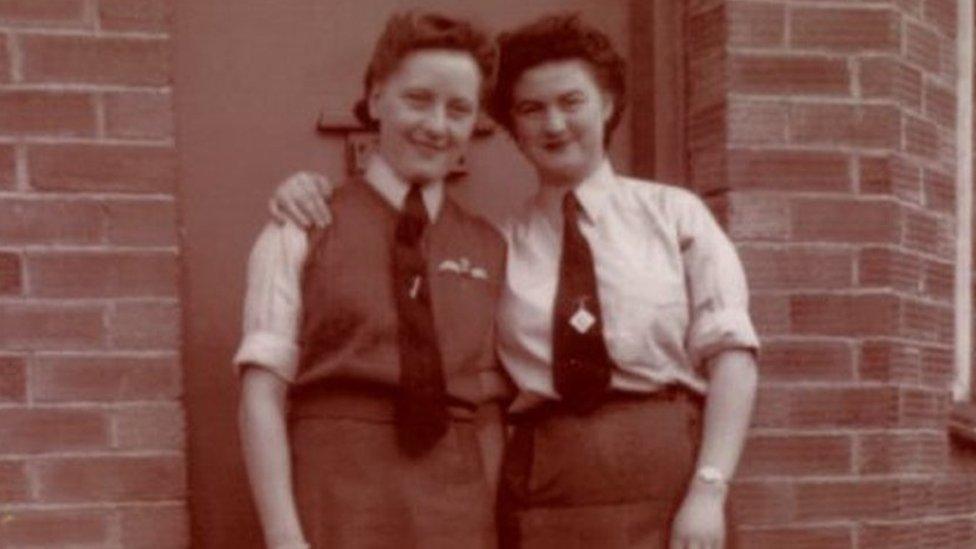
Eileen Pickering (left) who was stationed at Bletchley Park during World War Two, standing with her friend Joyce Edwards
Bletchley Park is preparing its "largest ever" exhibition featuring the "unsung" personal stories of people who worked there in wartime.
The Intelligence Factory will be housed in a newly restored building at the former World War Two code-breaking site, the trust, external that runs it says.
Dr Thomas Cheetham, a research officer at Bletchley Park Trust, said it was to celebrate the "normal people doing extraordinary work".
It opens on Thursday 28 April.
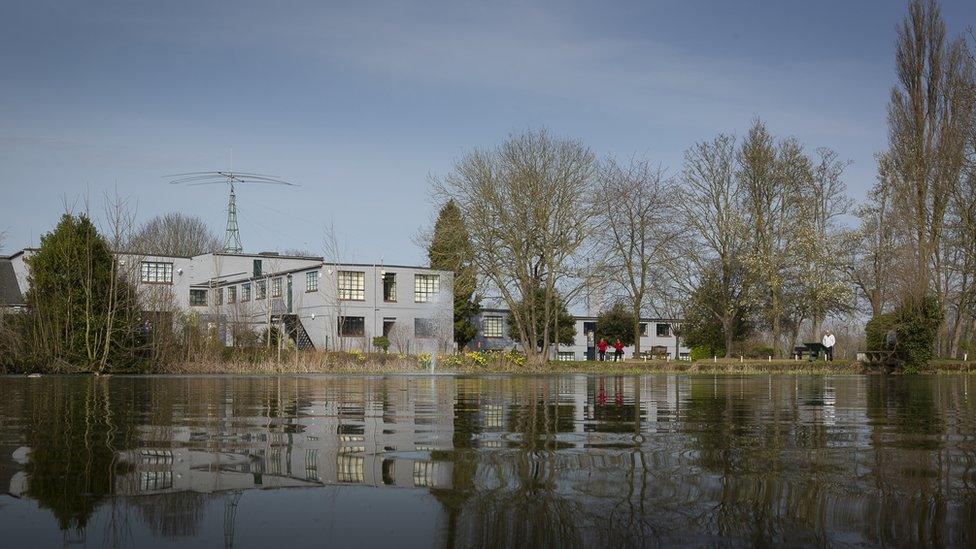
The exhibition is housed in the newly renovated Block A at Buckinghamshire's Bletchley Park
The permanent exhibition, in Block A, will explain the story of what happened on the Buckinghamshire site when it carried out "crucial" work, from 1942 to 1945, the charity said.
Dr Cheetham said a lot of the day-to-day work at the park was not seen as "special" but was vital to the war effort - as carrying out paperwork, running a machine, and keeping everyone fed, watered and housed had an "impact on the operation of Bletchley and on the allies winning the war".
"It's a testament to the achievements of your average people - they are not Alan Turing [the computer pioneer and codebreaker], they are normal people doing extraordinary work."
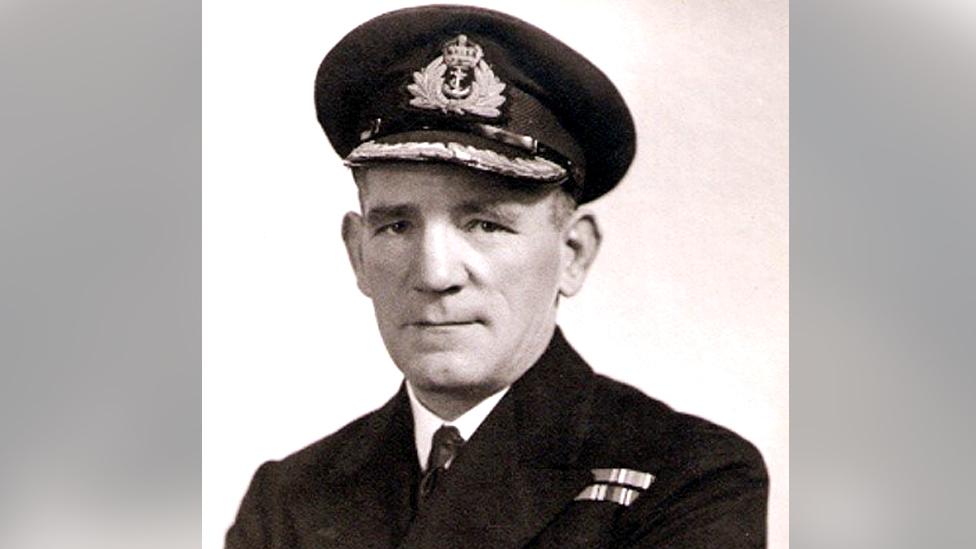
Capt Alan Bradshaw fought in numerous battles during World War One and was stationed at Bletchley Park during World War Two
One featured example is the work carried out by the "little-known, unsung hero" Capt Alan Bradshaw.
He was "responsible for feeding a workforce of thousands on rations, keeping staff morale high and navigating the tricky logistics of getting thousands of staff to work on time on what was a top secret site", Bletchley Park said.
He once sent a memo out telling staff to stop eating too much pudding.
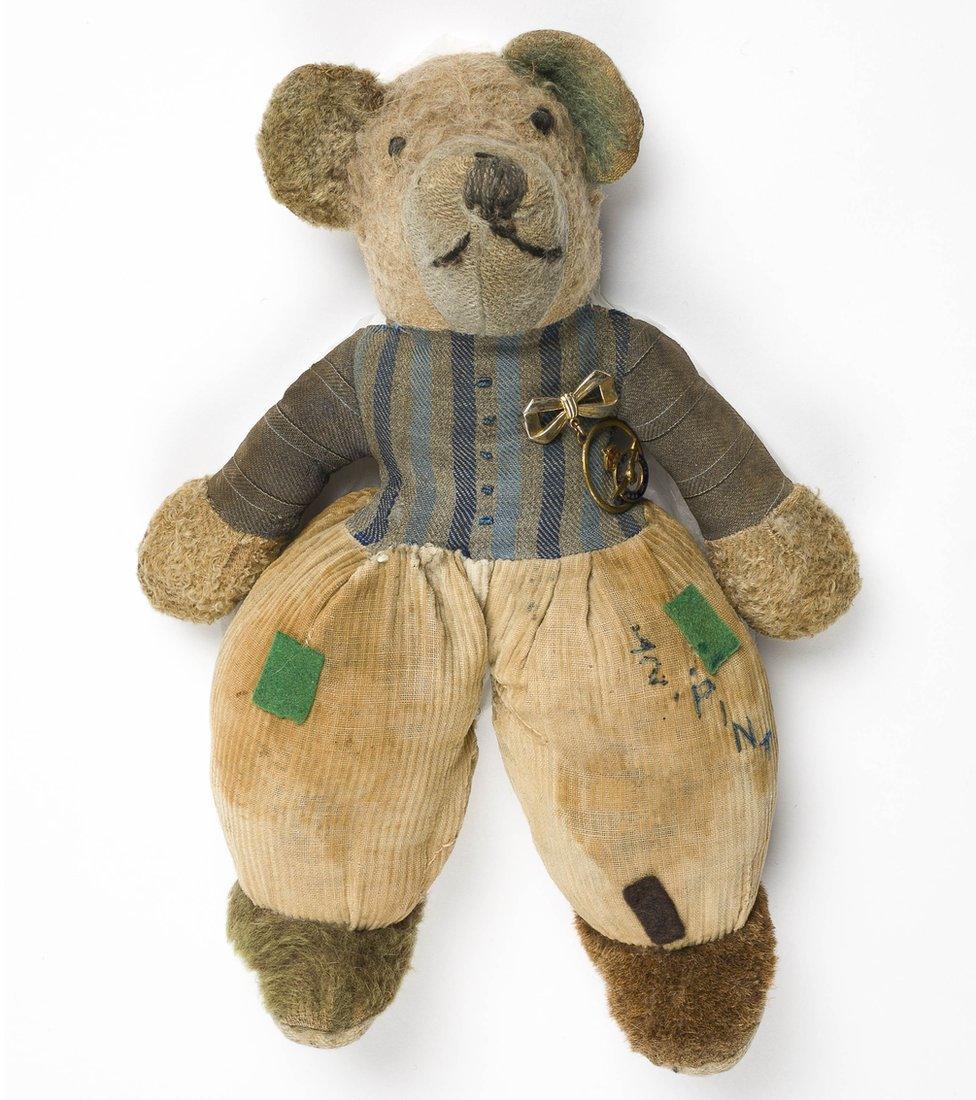
Having Half Pint, Eileen Pickering's teddy bear, on display shows the "home life of one of the thousands who kept the intelligence factory running", Bletchley Park said
A teddy bear that belonged to WAAF teleprinter operator Eileen Pickering will be on display, along with her blue knitted cardigan.
Mrs Pickering was accommodated in Hut 129 of the RAF camp adjacent to Bletchley Park, and is understood to have found the work tedious and tiring.
Dr Cheetham said the exhibition also highlights that the "work [carried out] is not just for historical reference - it has lessons for us today" as it explores the contemporary parallels between Bletchley Park's information-intensive wartime work and the digitised world of today.
"It's a very big and complicated story, we're still only scratching the surface, there will always be something new to tell."
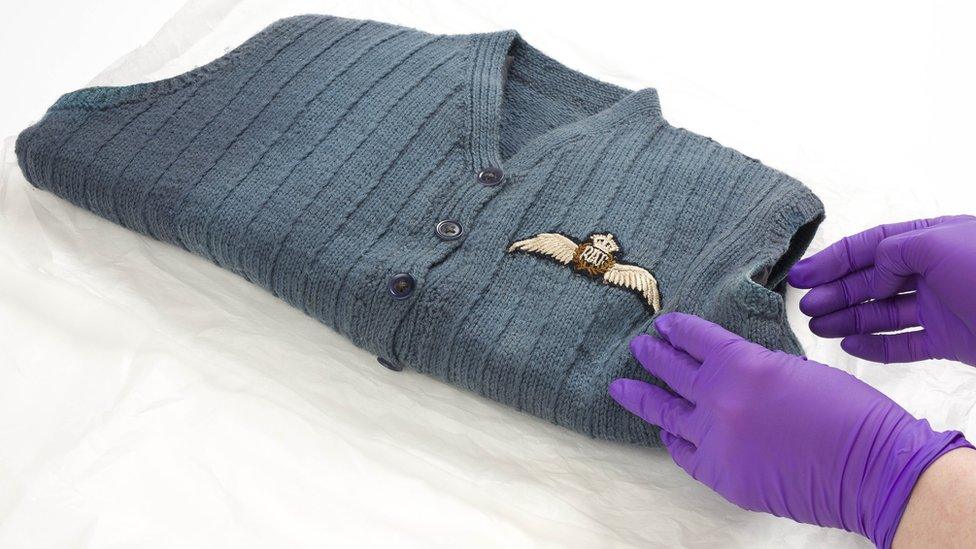
The blue RAF cardigan worn by Eileen Pickering is also on display
An example of that was when the researcher discovered a memo about a letter that had been sent to a Mr Reid, from The Bletchley Tomato Distribution Association, from the Foreign Office.
"He was told not to question why Bletchley Park needed so many tomatoes", Dr Cheetham said.
"It was along the lines of 'don't ask your questions, don't apply your normal ways, give them the tomatoes, trust us, it's important'."
"Secrecy was always the problem - they were always trying to get resources off people but couldn't say what they were needed for", he added.

Find BBC News: East of England on Facebook, external, Instagram, external and Twitter, external. If you have a story suggestion email eastofenglandnews@bbc.co.uk, external
Related topics
- Published8 October 2021
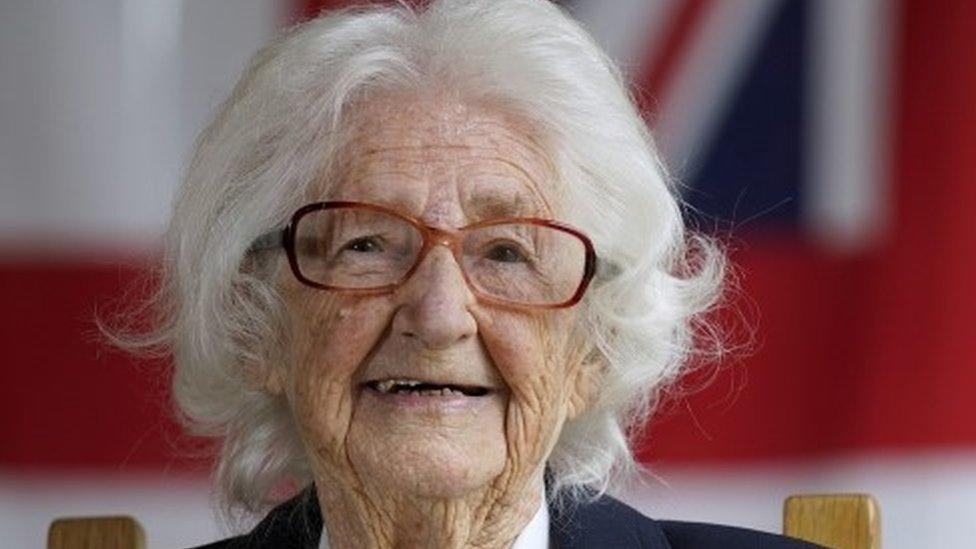
- Published6 May 2021
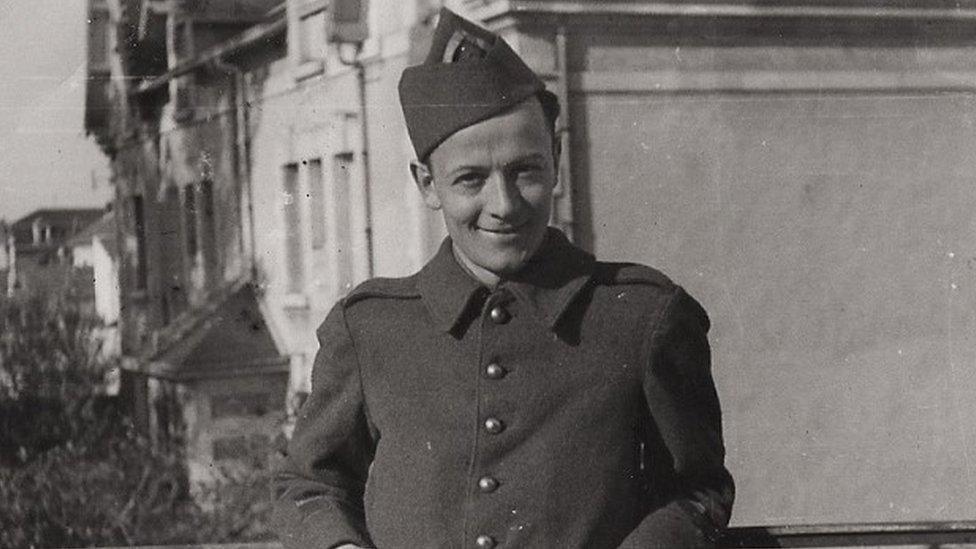
- Published25 March 2021

- Published9 November 2020
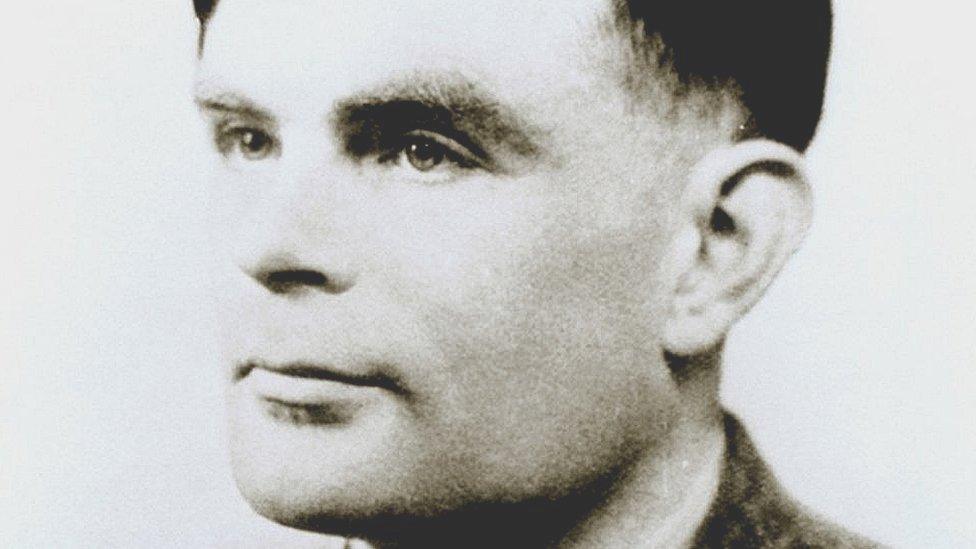
- Published20 October 2020
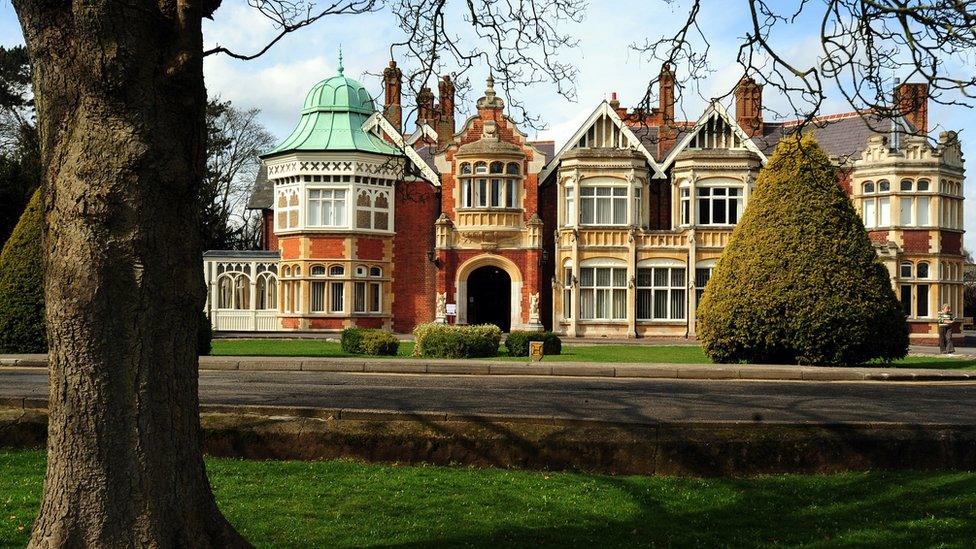
- Published13 October 2020